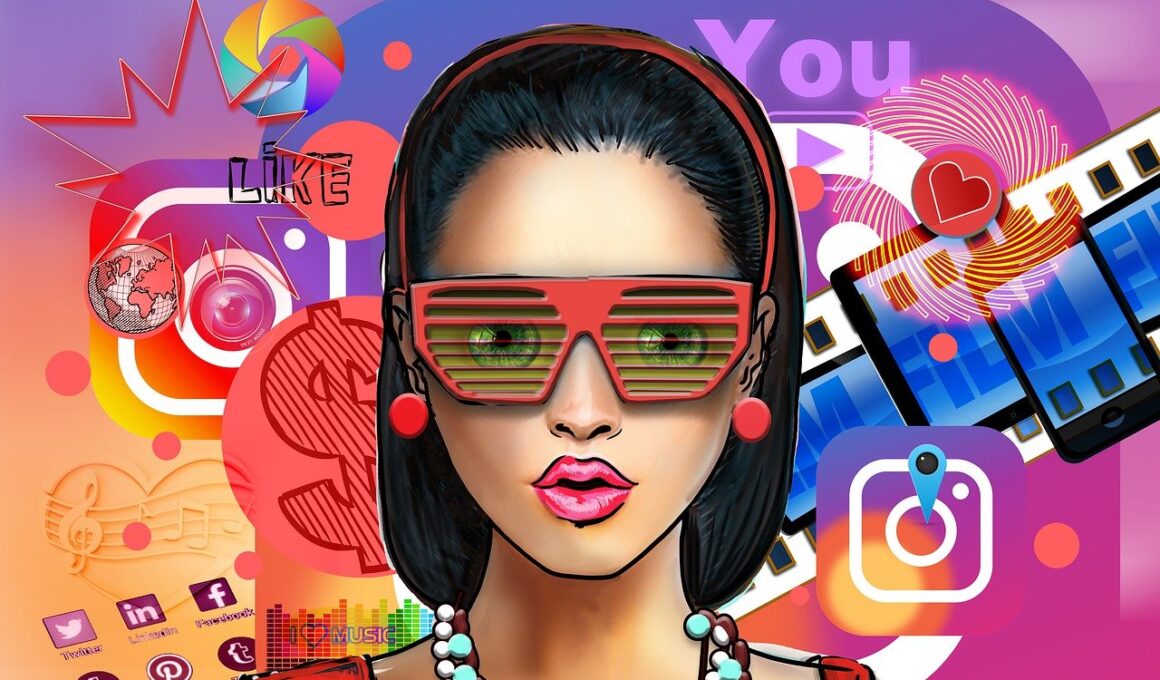How AI-Powered Social Media Tools Are Changing Influencer Marketing
The landscape of influencer marketing has transformed significantly with the advent of AI-powered social media tools. These technologies enable brands and marketers to identify suitable influencers who align with their marketing goals, demographics, and audiences. By analyzing vast amounts of data from social media platforms, AI tools can evaluate engagement rates, audience authenticity, and content resonance. A significant advantage of these tools is their ability to track influencer performance in real-time, facilitating the optimization of marketing strategies. Marketers can adjust their campaigns based on what is effectively capturing audience interest. Moreover, AI-driven tools can sift through countless profiles, enabling quicker decision-making processes than traditional methods. This helps in creating precise-targeting strategies based on consumer behavior. Furthermore, the integration of machine learning continues to improve the matchmaking process between brands and influencers. With AI, brands are no longer restricted to a broad category of influencers; they can select micro-influencers who often yield higher engagement rates on niche markets. Overall, AI’s influence on social media tools is shaping a more effective and data-driven approach to influencer marketing.
Social media tools powered by AI have revolutionized the approach to influencer collaborations, allowing brands to forge insightful partnerships. These tools provide comprehensive analytics to understand not just who an influencer is but what kind of audience they attract. By utilizing predictive analytics, brands can anticipate campaign outcomes and reach targeted demographics more effectively. This predictive power is invaluable in an era where customer preferences shift rapidly, providing a sharp competitive edge. Furthermore, AI tools can automate time-consuming tasks such as content scheduling and engagement tracking, giving marketers more time to focus on creative strategy. Influencers can also benefit from these tools, using them to gain insights into their follower demographics and enhance audience engagement. The increased transparency allows both parties to monitor the effectiveness of their partnership, thus ensuring consistent alignment with their objectives. Moreover, AI can help in analyzing consumer sentiment, offering insights into how campaigns are perceived in real-time. The real-time feedback loop presents unique opportunities for tweaking influencer messages or content to enhance resonance with audiences. As a result, both influencers and brands can leverage AI analytics to boost their social media impact.
AI-driven social media tools are significantly enhancing how influencers nurture and grow their communities. The ability to understand what types of content resonate best with followers enables influencers to tailor their messaging effectively. From optimizing posting times to selecting visually appealing images, these tools leverage learned behaviors, ensuring influencer content is always engaging. Additionally, predictive features suggest content strategies that might attract new followers or retain existing ones. This not only fosters growth but encourages authentic relationships with audiences, an essential aspect of influencer marketing success. As influencers integrate AI insights, they can curate a more personalized experience, which builds loyalty and enhances brand partnerships. The result is an influencer landscape that thrives on data, creating a more nuanced connection between brands and their fans. Continuous innovation in AI technology promises to refine these tools even further, unlocking new methods for influencers to interact with their communities. Furthermore, the insights gained can help content creation by identifying trending topics and audience interests. This ensures that the influencer remains relevant and can adapt swiftly to changes in social media dynamics.
Boosting Engagement with AI Tools
AI is instrumental in bolstering engagement rates within influencer marketing campaigns. By analyzing user behavior, AI tools can predict which types of content are likely to perform best. This ensures that influencers create content that is not only attractive but also engaging for their target demographic. Additionally, AI-driven insights can guide influencers toward the optimal platforms for content dissemination, enhancing visibility and enhancing potential audience reach. These tools also aid in customizing engagement strategies, allowing influencers to target specific audience segments effectively. Personalized content and recommendations crafted from comprehensive data analyses foster a stronger connection between influencers and their followers. In essence, AI tools empower influencers to take a more strategic approach to their content creation process. The result is a more satisfying experience for audiences, which translates into higher interaction rates and shared content. This increased engagement is a focus for brands seeking more impactful influencer campaigns. As brands start leveraging these insights, they can design their collaborations to maximize reach and influence while monitoring the efficacy of their campaigns more effectively.
The role of AI-powered tools in influencer marketing also extends to campaign performance measurement. Traditionally, evaluating influencer effectiveness relied on superficial metrics like likes and follows. However, AI delves deeper, interpreting metrics such as sentiment analysis, audience growth trends, and conversion rates. This allows marketers to assess collaborations based on strategic goals, providing deeper insights into each campaign’s success. Enhanced evaluation metrics streamline budget allocation by identifying high-performing influencers and low-performing ones, ultimately maximizing ROI on influencer campaigns. Additionally, these insights assist in refining future influencer partnership initiatives, creating a cycle of continual improvement. Brands can begin to understand what makes a successful partnership, based not just on immediate returns but on long-term audience engagement. As a dynamic element, AI continuously adapts to new data, ensuring that influencer marketing strategies can evolve along with shifting consumer behaviors. The embrace of AI tools also promotes transparency between brands and influencers, fostering trust through clear insights into performance. Ultimately, incorporating robust measurement tools empowers brands to craft smarter influencer marketing strategies that adapt and thrive.
Challenges in AI Integration
Despite the benefits, integrating AI in influencer marketing poses certain challenges that cannot be overlooked. One significant issue is the accuracy of AI predictions, as they depend on the quality of data inputted into the system. Poor data can lead to misleading insights and ineffective strategies. As brands rush to adopt AI tools, it’s crucial that they ensure their data practices are reliable and up-to-date. Additionally, the reliance on technology may create a disconnect between brands and their target audiences. While AI can provide algorithms designed to cater to preferences, it cannot fully replicate the human touch that fosters genuine connections in marketing. Finding the right balance remains a pressing concern. Privacy and ethical considerations also arise, as consumers become increasingly wary about data collection practices. Influencers who use AI tools must navigate these concerns while maintaining transparency with their audiences. This adds layers to the influencer-brand relationship that require constant monitoring. Therefore, tackling these challenges effectively is vital for maximizing the potential of AI in influencer marketing.
Looking ahead, AI is likely to drive even more advancements in influencer marketing. Continuous improvements in machine learning and predictive analytics will refine how brands and influencers collaborate. Integrating enhanced user feedback systems can ensure that AI-derived strategies remain relevant and effective. Furthermore, the evolution of social media platforms in harmony with AI advancements will create novel opportunities for engagement and content creation. As technology progresses, innovative formats such as AR and VR experiences could be integrated into influencer campaigns, offering brands compelling ways to connect with audiences. Collaboration tools will also become more sophisticated, empowering influencers to share insights and best practices more fluidly. This cooperative spirit can foster creativity and inspire new forms of storytelling. Additionally, brands must remain adaptable to shifts in social media trends and consumer behavior to sustain relevance. Thus, investing in ongoing education about AI technologies equips both brands and influencers to navigate this rapidly evolving landscape. Ultimately, the future promises a more intuitive synergy between AI and influencer marketing, one that could redefine how brands engage with consumers.
As AI tools continue to evolve, the future of influencer marketing holds exciting possibilities. The adoption of these advanced analytics will empower both influencers and brands to communicate more effectively with audiences. The capacity to develop targeted messaging and content strategies tailored to individual preferences is just the beginning. By leveraging AI data, brands can untangle complex market dynamics, allowing them to better predict consumer responses. Influencers, in turn, can create more authentic and personalized content, enhancing viewer experiences. This emphasis on consumer-centric approaches will further solidify brand loyalty and drive engagement. Moreover, ethical considerations surrounding data privacy and consent will become even more crucial. Balancing effective AI implementations with user trust and transparency will define the criteria for successful influencer campaigns. Moving forward, it will be imperative for brands and influencers to cultivate ongoing relationships based on reciprocity. Collaborative workshops and discussions will enhance mutual understanding of roles within influencer marketing strategies. This evolution will foster a vibrant ecosystem that values both the data-driven and human elements of brand storytelling. Interactions between brands and influencers are set to evolve, advancing toward more meaningful relationships that bridge gaps between consumers and market offerings.


